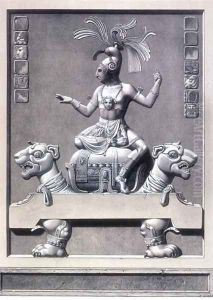Castaneda Paintings
Carlos Castaneda, born on December 25, 1946, in Peru, is not traditionally known as an artist in the conventional sense of painters or sculptors, but rather as a controversial and influential figure whose work spans anthropology, philosophy, and spirituality. His series of books, starting with 'The Teachings of Don Juan: A Yaqui Way of Knowledge' published in 1968, claimed to describe his training in shamanism under the tutelage of a Yaqui 'Man of Knowledge' named Don Juan Matus. His writings, while initially accepted by some as legitimate anthropological studies, quickly became popular among the New Age movement and are often regarded as works of fiction or allegory.
Castaneda's influence on the counterculture of the 1960s and 1970s was profound, with his descriptions of non-ordinary reality and the use of psychoactive plants drawing a dedicated following. His work is characterized by discussions on the nature of perception, the concept of reality, and the possibility of knowledge beyond the physical world. Despite the controversy surrounding the veracity of his experiences and the mystical teachings he presented, Castaneda's books sold millions of copies worldwide and were translated into numerous languages.
The academic community remains divided on Castaneda's legacy. Critics argue that his work undermines the field of anthropology and misrepresents indigenous cultures, particularly the Yaqui people of Mexico. Supporters, however, view his writings as opening doors to alternative ways of thinking and spiritual exploration. Castaneda was notoriously private, rarely appearing in public or giving interviews, and details of his personal life remain elusive. He died on April 27, 1998, in Los Angeles, California, leaving behind a body of work that continues to inspire debates on the nature of reality, knowledge, and the power of narrative in shaping both.
